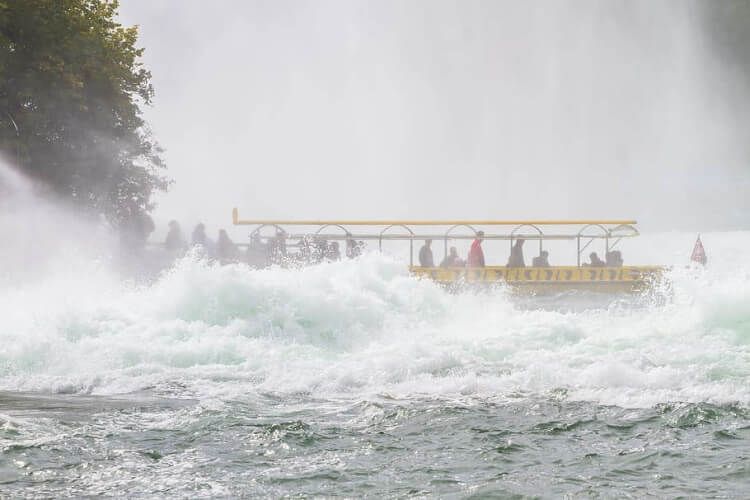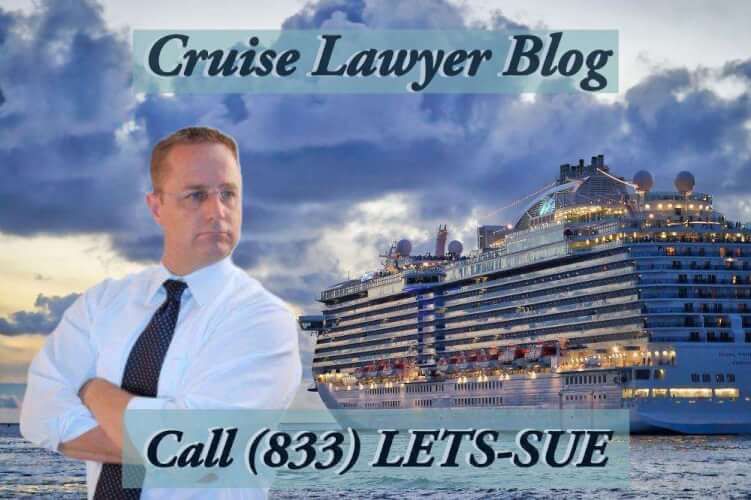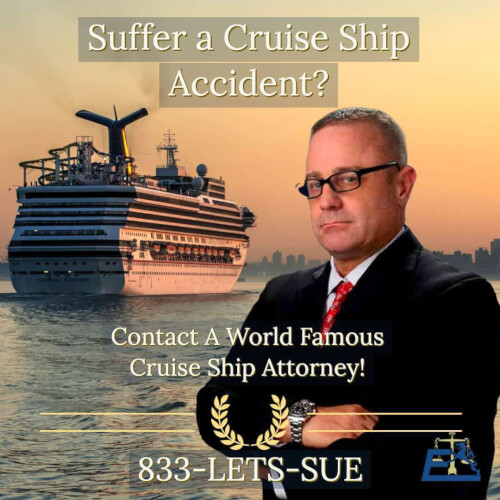How to Survive Falling from Cruise Ship in Open Ocean
Falling from cruise ships may not be a scenario that plays in your head often. The chances you’re on a cruise ship may not be high, let alone falling overboard.
However, what if you did fall overboard? This happened to James Michael Grimes, who survived almost 20 hours in the open sea after falling overboard the night before Thanksgiving.
James was aboard the Carnival Valor cruise ship, and although he claims he doesn’t have any memory of falling, he did leave us with some tips on how a person falling overboard can still survive.
The following page will outline how a person who falls overboard a ship can survive, as well as evaluate whether the Carnival Valor cruise ship did have any liability in this case or not.
What Happened to James Michael Grimes? An Overview
James Grimes (28, male), fell from a cruise ship when he was returning home to his family in Cozumel Mexico. He spent nearly 20 hours in the Gulf of Mexico before he was rescued.
Grimes claimed that thinking about his daughter, Annabeth, was something that got him through his darkest moments during the time he spent treading water.
At about 8:25 PM on Thanksgiving Day, crew members aboard the “Crinis” bulk carrier vessel alerted the US Coast Guard of James’s location.
A few moments later, the US Coast Guard lifted James from the water and into a helicopter that transported him to the Lakefront Airport in New Orleans.
Thankfully, James is currently stable and seeking help through a GoFundMe campaign to pay for all the medical bills, as he didn’t have insurance.
How to Survive Falling from Most Cruise Ships or Cargo Ships
Factors That Can Help You Survive If You Fall Off a Cruise
James’s story is certainly admirable, but there were many factors that aided his survival. According to Lt. Seth Gross, a US Coast Guard who works with search and rescue missions on the Louisiana Gulf Coast, there were many things that had to work out perfectly for James to survive the fall overboard.
Some of these factors involved:
- Surviving the fall
- Keeping himself afloat
- The fact that no sharks located him
- The fact that the Coast Guard acted swiftly.
On the other hand, the Search and Rescue Optimal Planning System outlined some factors that can affect whether someone who falls overboard survives or not.
Those factors include:
- The person’s weight and body fat percentage
- The person’s clothing
- Access to any floating object
- Weather and ocean patterns.
According to the Cruise Lines International Association, there were about 212 incidents on cruise ships between 2009 and 2019. Unfortunately, only 48 out of the 212 people involved in these incidents were saved.
What Can You Do?
Although falling from a cruise ship is unlikely, some particular scenarios could cause you to experience this type of incident.
Ideally, anyone who falls from a cruise ship could get a life ring thrown at them to survive, but what if no one saw you fall?
Thankfully, Cat Bigney, a survival expert who consulted for Nat Geo and Bear Grylls, has given people a few “Practical Things” they can do to increase their chances of surviving in the open ocean.
One – Stop Panicking
If you fall off a cruise and manage to survive the fall damage, you must do your best to avoid panicking.
It’s completely normal to panic about your time spent treading water, especially if you’re in a situation similar to James’s where the cruise ship isn’t in sight, and you’re all alone on the open sea.
The most common reaction to falling into the open ocean is gasping for air (which happens due to a cold shock response). However, this motion could make you get water into your lungs, which will decrease your chances of survival.
According to Cat Bigney, panicking is the biggest factor that contributes to a man overboard dying.
Two – Finding a Floating Object
Regardless of where you fell, you must do your best to stay above the surface. While some people have it easier to float for longer, it’s almost impossible to thread water for hours; you will get tired.
Some factors that will determine how long you will float include your body composition, muscle mass, and body fat percentage.
Even if you changed between floating, swimming, and treading, your body would eventually get tired, so what can you do?
First, try to find anything that floats. Grimes, in this case, tried chewing on bamboo, which is known for being buoyant.
If you didn’t find anything to float on, taking off your clothes could make you more buoyant. Still, finding something to get into will be better at making you safer from a predator or an “unidentified finned creature.”
Three – Making a Signal for the Coast Guard
Falling from a cruise ship away from shore may cause you problems, as you will have to wait until a Coast Guard helicopter or other ships see you. Even then, it’s hard to know how much time you will have to wait.
Due to the fact that there’s a lot of garbage floating in the sea, you can take some of that to make a signal. Once someone makes a report for a “Man Overboard,” a Coast Guard crew member estimates where the object making the signal may be coming from.
About the Lack of Food
A common concern in an overboard situation is food. You don’t know how long you can go on before you’re eventually rescued. Keep in mind that food will not be your primary concern in an overboard situation, as the human body is designed to endure some time without eating. The body can take calories from the fat and liver to regulate its temperature for a while.
However, falling in certain bodies of water may affect you. In James’s case, for example, he fell into a 70-degree water body, which was much colder than the average person’s baseline core temperature. In these life-or-death situations, your goal should be to keep moving to avoid dying from hypothermia or getting caught by potentially hungry predators, as you will likely be fine without food for some time.
Water temperature and rough water is the biggest immediate threat, especially when trying to stay afloat as the ship returns in the vast majority of cases. Don’t forget the water can be significantly colder in a man overboard situation in the great oceans off European waters than off the coast of Mexico, for example. This makes staying afloat hard, even in calm conditions.
It’s not recommended to drink salt water. Instead, you would create shelter from the sun to help you keep any water you already had in your system.
Where’s the Liability in This Case?
Are cruise ships liable for a man overboard? Technically, they could. Generally speaking, any person who fell on a cruise ship could sue the cruise line, but the process can be a bit more complicated for a man overboard.
Proving that overboard incidents were the cruise ship’s fault can be complicated, but if you work with an experienced lawyer, you may have higher chances of getting compensation.
A cruise ship can be liable for your damages if the incident happened for any of the following reasons:
- Defective Handrails: According to the Cruise Safety Act, every cruise ship traveling from and to the US must have 42-inch-tall handrails to prevent accidents.
- Violence: If someone falls from a cruise ship due to a crew member’s aggressive behavior, the victim can sue the cruise line. On the other hand, if the aggressive behavior came from someone unrelated to the ship, it can still be held liable if it anticipated the event and didn’t take any measures to stop it.
- Lack of Rough Sea Warning: Every cruise ship must notify passengers when it’s entering rough waters. If someone falls overboard due to the ship not informing them of rough waters, they could sue.
- Intoxication: A person can sue a cruise ship if the crew members serve them too much alcohol, getting them intoxicated, and therefore, more likely to fall.
- Poor Search and Rescue Efforts: Every cruise ship is obligated to notify and perform search and rescue operations once a person falls. If the members of the crew don’t report the missing passenger or fall incident, the victim can sue.
What Damages Could You Sue for?
If the cruise line is found to be liable for a person’s fall, it may become accountable for:
- Medical Bills
- Future Medical Treatment or Surgery
- Pain and Suffering
- Lost Wages
- Missed Work
- Loss of Future Earning Capacity
- Loss of Enjoyment of Life
- Disability or Death.
In the case of James, he had to set up a GoFundMe campaign to cover the medical bills from the fall, which could have added up to the emotional distress within his family.
To avoid these problems, it’s important to hire an experienced lawyer who can evaluate the case and determine if you’re eligible for compensation.
Surviving a fall from a cruise ship is already stressful enough, and even if you managed to survive without complicated physical wounds, you may still have to go under psychological treatment to deal with the trauma.
Even though falling from a cruise ship is traumatizing, the victim must talk to an attorney as fast as possible to build a case. The sooner the victim starts to gather evidence and counseling, the better.
Bottom Line – Contact Ehline Law for Legal Assessments
Overboard incidents are ones that should only stay in movies or TV shows. Even if luck is in your favor, and you stay afloat until someone saves you, you will still have to deal with hefty medical bills and long psychological treatment to deal with what just happened.
Going through these circumstances alone can be stressful, which is why we recommend hiring a lawyer to seek legal counsel.
If you or a loved one was involved in an incident surrounding a cruise ship, don’t hesitate to seek help from the legal team at Ehline Law.
We’ll be able to take a look at your case and determine how much compensation you’re owed.






